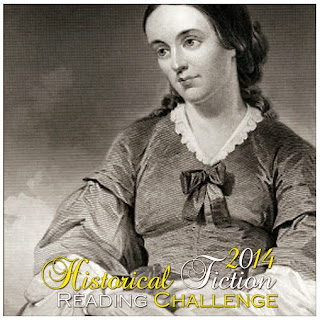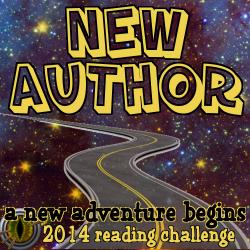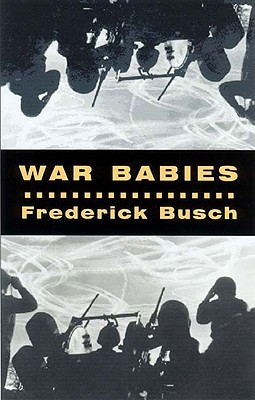Source: Public library
Paperback, 114 pages
I am an Amazon Affiliate
War Babies by Frederick Busch is a novel about two adult children whose lives connect long after their fathers have died in the Korean War and not by accident. A thirty-plus year-old attorney decides he’s established enough in his career to seek out the answers he wants about his father’s role in the Korean War and how it landed him in jail. Peter Santore has struggled with the loss of his father, who is said to be a traitor in a Korean War POW camp, and he decides it is time to travel to England to get some answers. He discovers through his research in the United States that his father may have played a role in the death of Hilary Pennels’ father in the POW camp. Traveling to Salisbury, he debates how he will find this woman and introduce himself, but clearly he decides that he will use her to get the information he wants if he has to. Along the way, he also runs into Mr. Fox, a survivor of the Korean War POW camp.
“I had two canvas bags and a wrinkled blazer, and the sure sense, as I left London, that I didn’t know what I would do if I found Miss Hilary Pennels, or whatever her married name might be. How do you do. My father committed treason in Korea at about the same time your father, terribly wounded, was saving the lives of his men and distinguishing himself in the eyes of history forever. I just wondered if my father might have done anything to, er, kill yours?” (page 6-7)
Busch’s third person narrative, which also changes to first and second person randomly, distances the reader from these characters in a way that makes the instant connection between Hilary and Peter tough to believe. Moreover, how they interact with one another is by turns sympathetic and hurtful, perhaps more so by Hilary who seems manipulative. While Peter struggles with his feelings for this woman and the “relationship” they’ve started, he also wants to close a chapter in his life that has to do with the Korean War and his father. How does he navigate this fragile relationship to get the information he needs?
Mr. Fox is a damaged war veteran, but the horrors of the Korean War are never far from his mind, and how he lurks in the corners of this “conversation” between Hilary and Peter is downright creepy. His hatred of Peter’s father is evident and understandable, but the projection of that hatred by Mr. Fox demonstrates just how broken and lost the veteran is. He’s brutal in describing the camps, but he’s also brutal in how he approaches the tale and other people he interacts with. Busch even describes his rotting breath and fetid teeth and gums, which can only signify his moral depravity. Fox’s issues go beyond the PTSD, and Busch relays his story of the camps in just the way a veteran who is bitter would, and these are the strongest parts of the story. Some readers may find connecting with these characters difficult because their motivations are hidden and how they interact really has no context.
“Mind you, I don’t know how easy it might be. But you should make the effort. You should prosper in the wake of your past, not live a cripple. England’s full of cripples. It’s the country of cripples. You see them all over the towns, in braces and wheelchairs and with no arms, wheezing and spitting blood and falling over in pubs.” (page 62)
War Babies by Frederick Busch is complex and deals with the after effects of war on the children of veterans, POWs, and traitors. It is ultimately about the choice that these families and their individual members must make for themselves — they need to learn to accept the past that cannot be changed and to move forward. Connections can help strengthen the will to move on from the past, but those connections also must be bred in honesty and mutual respect.
About the Author:
Frederick Busch was an American writer. Busch was a master of the short story and one of America’s most prolific writers of fiction long and short.
Interested in the War Through the Generations discussion, see part 1 and part 2.










